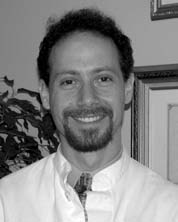Ian D. Bier, ND, PhD, LAc
As naturopathic doctors, one of our main goals is to help move the patient towards optimum health. This concept permeates the literature of our medicine.
A quick glance at the AANP definitions of naturopathic medicine gives us various permutations:
- Naturopathic Medicine – working with nature to restore people’s health.
- Naturopathic medicine is a distinct primary health care profession, emphasizing prevention, treatment and optimal health
- Naturopathic medicine is a distinct method of primary health care – an art, science, philosophy and practice of diagnosis, treatment, and prevention of illness.
- Naturopathic physicians seek to restore and maintain optimum health in their patients
- Naturopathic physicians work with their patients to prevent and treat acute and chronic illness and disease, restore health and establish optimal fitness
The guiding principles of our medicine continually refer to the achievement of health, which of course begs the question: What is health?
Medline defines health as: The state of the organism when it functions optimally without evidence of disease. This definition is encouraging in that it doesn’t focus only on the lack of disease, a common weakness of conventional medical thinking. The problem arises when the database is searched for a definition of optimal functioning and there’s nothing available.
The World Health Organization also provides a definition of health, which is: Health is a state of complete physical, mental and social well-being and not merely the absence of disease or infirmity. Again, we see a wonderful naturopathic type focus on well-being, rather than just on the absence of disease; but we see the same troubling vagueness and use of undefined terms.
What does well-being mean? Here is the next area where the blood type system becomes very valuable. The blood type system offers some practical answers. I’m sure that each of us harbors within ourselves our own vision of what health or optimal functioning is. How specific is that vision? Is it something that can be clearly described and used to guide your treatment? Can you benchmark against it? Words like balance, equilibrium and homeostasis are wonderful sounding concepts, however for many of us they’re not clinically useful terms. For instance, what equilibrium needs to be maintained within the system?
The organism is homeostatic around what axis? Is homeostasis the same for everyone? There is a need for a greater understanding of the specifics. In a simple analogy that I sometimes use with patients, it is important to know if you are driving the sports car or the tractor. One is no better than the other, and both have their strengths and weaknesses. But, you don’t want to tow much with the sports car, and you’re not going to win any races with the tractor.
The understanding of the body that the blood type system provides is very effective in allowing the doctor to describe to the patient what the goal is; that is, what the ultimate picture of health for that individual is. In our society, the underlying assumption is that health means that you can push the body hard and not suffer; do your aerobics class, go for a run, and sleep fewer hours. The fallacy here is that the more you can do, the healthier you must be. What the blood type system allows us to do is to create a different vision. A healthy person of O blood type can actually live that American dream and sleep 6 hours a night while training for marathons in their spare time – and get stronger for it. However an A blood type, even at the ultimate peak of health, will always pay a price for pushing their body in that way. They will always require at least 8 hours of sleep, and need to use exercises like yoga, Tai Chi or Qi Gong to strengthen their body while calming their nervous system. My personal preferred forms of exercise are Tai Chi Chuan and Qi Gong, which fortunately work wonderfully for my B blood type. However, as much as I personally love it for all it does for me and what it represents, I need to acknowledge that it is neither necessary nor even sufficient for every patient.
Our profession talks about biochemical individuality, and treating each person as a unique individual. Part of that individuality is recognizing the different equilibriums that each of the blood types needs to strive for. The blood type system provides a reliable guide to the unique strengths and limitations of each individual.
 Ian D. Bier, ND, PhD, LAc is a Naturopathic Doctor, a Licensed Acupuncturist, and has a Ph.D. in Human Services with a focus on Therapeutic Nutrition. He is a graduate of Bastyr University, and completed a residency in Family Practice at Southwest College of Naturopathic Medicine. He is a researcher and author of scientific papers and book chapters, is a lecturer in the areas of nutritional medicine and research, and has peer-reviewed for the Journal of Alternative and Complementary Medicine, the American Public Health Association, and the National Institutes of Health. He has been a patient and student of Dr. James L. D’Adamo, the originator of the Blood Type Diet concept, for over 15 years and continues to work with him at the D’Adamo Institute in Portsmouth, NH.
Ian D. Bier, ND, PhD, LAc is a Naturopathic Doctor, a Licensed Acupuncturist, and has a Ph.D. in Human Services with a focus on Therapeutic Nutrition. He is a graduate of Bastyr University, and completed a residency in Family Practice at Southwest College of Naturopathic Medicine. He is a researcher and author of scientific papers and book chapters, is a lecturer in the areas of nutritional medicine and research, and has peer-reviewed for the Journal of Alternative and Complementary Medicine, the American Public Health Association, and the National Institutes of Health. He has been a patient and student of Dr. James L. D’Adamo, the originator of the Blood Type Diet concept, for over 15 years and continues to work with him at the D’Adamo Institute in Portsmouth, NH.



